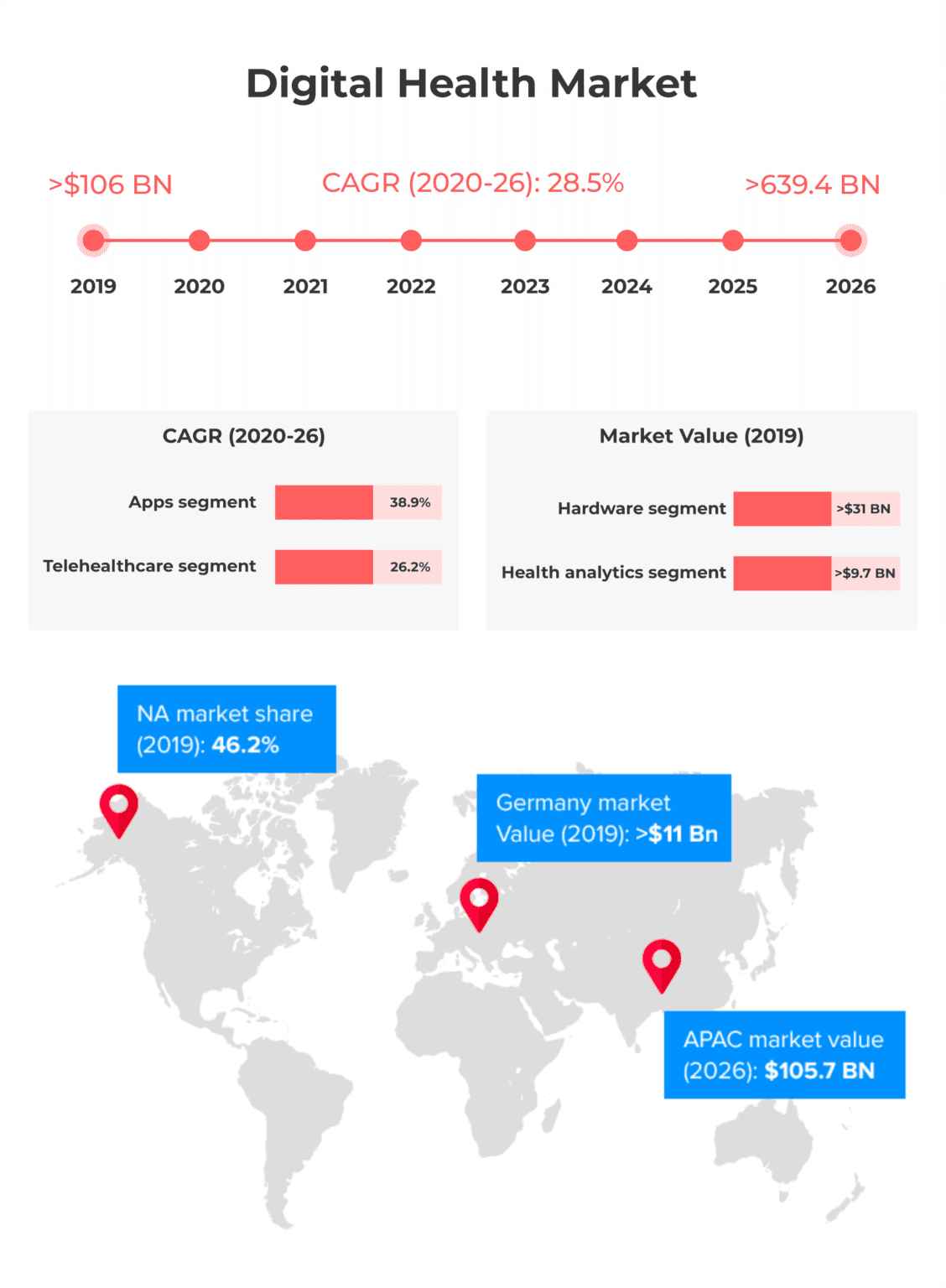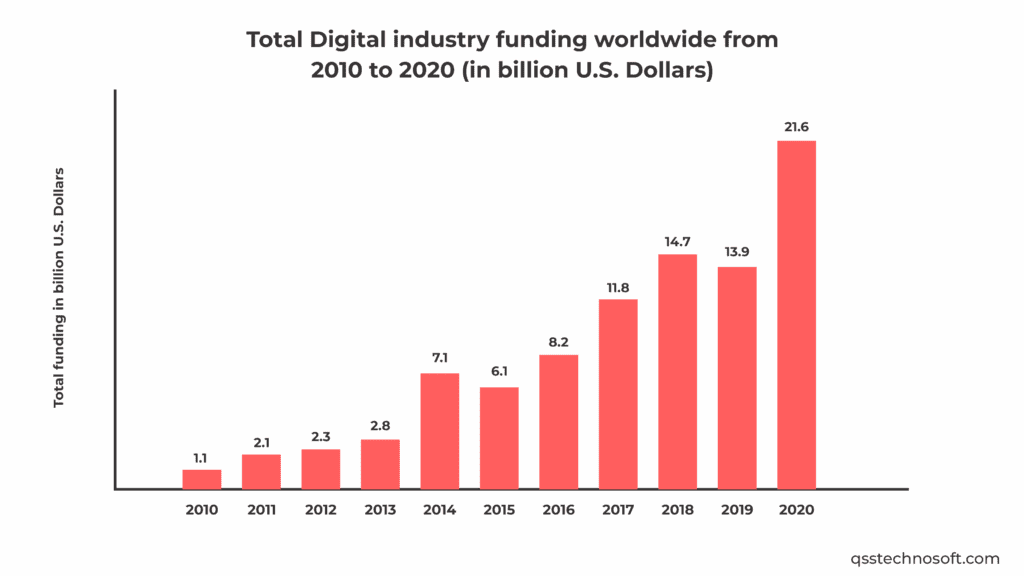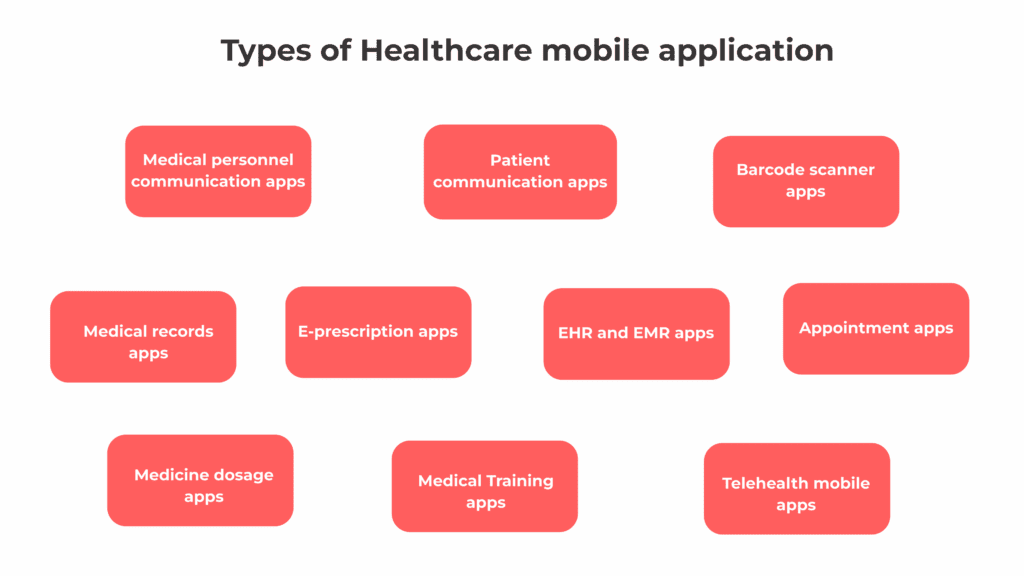Over the last 20 years, our lives have changed drastically with the influx of mobile applications. From communicating with friends and family to conducting meetings, to streaming entertainment mobile apps play a tremendous role in manoeuvring through our daily life. Healthcare is no exception. The industry has taken note of this trend and the vast potential of using mobile tech and applications to revolutionise patient care and promote better overall health. So much so, that the number of applications adopted for healthcare purposes has seen a noteworthy rise in recent times.
In this article, let’s uncover the possibilities that these innovative solutions offer healthcare providers, the types of mobile apps that are making waves, the effects of the coronavirus pandemic and similarly heightened scrutiny of medical data security and privacy regulations. Ultimately, let’s look at how mobile apps revolutionised healthcare and what the future bears for this impressive delivery system.

Understanding the Benefits of Mobile Apps for Healthcare
Mobile apps have become a fundamental tool in healthcare for a multitude of reasons, offering several benefits that drive their popularity. Here are some key advantages:
Accessibility: Mobile apps break down geographical barriers, allowing patients to access healthcare services and information from the comfort of their homes. This accessibility is especially crucial for individuals in remote areas who may have limited access to healthcare facilities.
Convenience: By using only a few taps on their smartphones, patients are provided with the convenience of simply clicking through scheduling appointments, filing prescription refills, and having access to their medical records. Furthermore, it also provides extra impetus and support to choose the best options for self-care journeys.
Health Monitoring: With the integration of wearables and other connected devices along with mobile apps, real protocols step into space to monitor health data more reliably. Using these accurately gathered values concerning heart rate along with blood pressure, patients can easily approach their healthcare providers for successful and elaborative management of chronic conditions.
Medication Management: Medication adherence is a significant challenge in healthcare. Mobile apps provide reminders and alerts to help patients take their medications on time, reducing the risk of complications and hospitalizations.
Telehealth Services: The rise of telehealth services via mobile apps has revolutionised healthcare delivery, enabled remote consultations and minimising the need for physical visits to healthcare facilities. This was particularly important during the COVID-19 pandemic.
Also Read Our page : hire mobile app developers
Exploring the Popular Types of Mobile Apps Used in Healthcare
The healthcare sector has seen the development of various types of mobile apps, each catering to specific needs. Here are some popular categories of healthcare apps:
Health and Wellness Apps: These apps focus on promoting a healthy lifestyle, offering features such as exercise routines, nutrition tracking, and mental health support. Apps like MyFitnessPal, Fitbit, and Calm have gained immense popularity in this category.
Telehealth and Virtual Consultation Apps: The COVID-19 pandemic accelerated the adoption of telehealth apps, allowing patients to consult with healthcare providers remotely. Leading platforms include Teladoc, Doctor on Demand, and Amwell.Medication Management Apps: Medication adherence is a critical aspect of managing chronic conditions. Apps like Medisafe and MyTherapy help patients keep track of their medications and receive timely reminders.
Health Record Apps: These apps enable patients to access their medical records, test results, and appointment schedules. Epic’s MyChart and Apple Health Records are notable examples.
Wearable Device Apps: Wearables like fitness trackers and smartwatches sync with mobile apps, allowing users to monitor various health metrics, such as steps taken, heart rate, and sleep quality.
Mental Health Apps: The importance of mental health has gained significant recognition, and apps like Headspace, BetterHelp, and Talkspace offer mental health support and therapy services.
Also Read Our page : blockchain app development services
Examining How Mobile Apps are Used to Streamline Patient Care
The integration of mobile apps in patient care has streamlined numerous healthcare processes, resulting in improved efficiency and patient outcomes. Here are some ways mobile apps are enhancing patient care:
Appointment Scheduling: Mobile apps enable patients to book appointments with healthcare providers at their convenience. This not only reduces the burden on front desk staff but also ensures that patients receive timely care.
Remote Monitoring: For patients with chronic conditions, remote monitoring via mobile apps and connected devices helps healthcare providers track health metrics in real time, allowing for early intervention and personalised treatment plans.
Emergency Alerts: In cases of emergencies, mobile apps can send alerts to healthcare providers, informing them about critical patient conditions. This ensures rapid responses and timely interventions.
Health Education: Mobile apps provide a platform for healthcare providers to share educational materials and resources with patients, empowering them to make informed decisions about their health.
Communication: Mobile apps facilitate seamless communication between patients and their healthcare providers, reducing response times and improving the patient-doctor relationship.
Patient Engagement: Engaging patients in their own care is crucial for better outcomes. Mobile apps encourage patients to take an active role in managing their health by providing tools for monitoring, tracking, and managing their conditions.
Evaluating the Impact of COVID-19 on Healthcare App Development
The COVID-19 pandemic served as a catalyst for the development and adoption of healthcare apps. It prompted a swift transformation in the way healthcare is delivered and accessed. Here’s how the pandemic influenced healthcare app development:
Telehealth Surge: The pandemic necessitated social distancing, which in turn led to a surge in telehealth services. Healthcare providers rapidly adopted telehealth platforms, and patients embraced the convenience of virtual consultations.
Remote Monitoring: With hospitals overwhelmed and patients hesitant to visit healthcare facilities, remote monitoring through mobile apps became crucial for managing COVID-19 cases and other chronic conditions. Patients could transmit vital signs to healthcare providers without physical contact.
Contact Tracing: Contact tracing apps were developed to track and contain the spread of the virus. These apps alerted individuals who had been near confirmed COVID-19 cases, enabling them to self-isolate and get tested.
Vaccine Passport Apps: Mobile apps played a pivotal role in facilitating vaccine distribution and monitoring. Vaccine passport apps were created to confirm an individual’s vaccination status, enabling entry to events, travel, and certain venues.
Health Information Dissemination: Mobile apps became a primary source of information dissemination, providing users with real-time updates, safety guidelines, and COVID-19 statistics.
E-commerce for Pharmaceuticals: The pandemic fuelled the growth of e-commerce for pharmaceuticals, with mobile apps offering the convenience of ordering medications online.

Exploring Innovative Solutions Leveraged by Healthcare Providers to Enhance Accessibility and Efficiency
Healthcare providers and organizations have continuously innovated to enhance accessibility and efficiency through mobile apps. Here are some innovative solutions that have gained popularity:
AI-Powered Diagnostics: Mobile apps that incorporate artificial intelligence (AI) can assist in diagnosing medical conditions. For instance, dermatology apps can analyse skin images to identify potential issues.
Virtual Reality (VR) Therapy: VR is being used in mental health apps to provide immersive therapy experiences for individuals with anxiety, PTSD, or phobias. It allows therapists to create controlled environments for exposure therapy.
Remote Patient Monitoring Devices: Mobile apps integrated with remote monitoring devices, such as glucose metres and blood pressure cuffs, enable patients to track their health and transmit data to their healthcare providers.
Personalised Treatment Plans: Apps are using patient data and AI to create personalised treatment plans and recommendations, improving treatment efficacy and adherence.
Health Chatbots: Chatbots and virtual assistants are being used for instant responses to patient queries and appointment scheduling, enhancing the patient experience.
Conclusion
The popularity of mobile healthcare apps is undeniable – they provide convenience, accessibility, and a range of helpful services that ultimately benefit patient care and overall health outcomes. Examples include telehealth services, immunisation reminders, and medication management just to name a few.
Our future of health will be heavily underpinned by these new mobile applications, leading to widespread digital transformation for the entire healthcare sector. Those organisations that keep ahead of digital advancements and comply with secure measures are positioned to move even further ahead in providing top-notch care.
Why should you choose QSS Technosoft Inc for developing mobile apps in the healthcare sector?
QSS Technosoft Inc is the perfect company for cultivating mobile apps in the healthcare sector. Our unparalleled expertise makes the ideal candidate for developing top-notch solutions that meet all of your requirements.
Our development team comprises experienced professionals adept in the latest mobile app technologies and trends. Such extensive knowledge guarantees that your app will be created with the latest and most relevant industry technology, thereby facilitating long-term success for your business.
Furthermore, QSS Technosoft Inc. offers a truly client-centric experience, providing flexible and personalised services that precisely match and apply to your practices and choices across the sector.
Also Read Our page : iphone app development company
FAQs
1.How have mobile apps revolutionised the healthcare sector?
Mobile apps have changed the way healthcare is delivered and managed in several ways. They provide patients with convenient access to health information and services, enable remote monitoring of chronic conditions, streamline communication between doctors and patients, and facilitate appointment scheduling and prescription refills.
2.What are some benefits of using mobile apps in healthcare?
There are numerous benefits of using mobile apps in the healthcare sector. Some of these include improving patient engagement and satisfaction, enhancing communication and collaboration between healthcare providers, increasing efficiency and productivity, reducing medical errors, and promoting proactive health management.
3.Are there any concerns regarding the use of mobile apps in healthcare?
Yes, there are some concerns related to the use of mobile apps in healthcare. These include data privacy and security, regulatory compliance, reliability and accuracy of health information, and potential bias in health algorithms. It is essential for healthcare organizations to address these concerns and implement appropriate measures to ensure the safe and responsible use of mobile apps.
4.What types of healthcare services can be accessed through mobile apps?
Mobile apps offer a wide range of healthcare services, including telemedicine consultations, medication management, appointment scheduling, fitness tracking and coaching, mental health support, remote patient monitoring for chronic conditions, and access to electronic health records. With the constant advancements in technology, we can expect even more services to become available through mobile apps in the future.
5.How can mobile apps improve healthcare access for underserved communities?
Mobile apps have the potential to improve healthcare access for underserved communities in several ways. They can provide virtual consultations and remote monitoring, reducing the need for in-person visits that may be difficult or costly for some individuals. Additionally, mobile apps can offer multilingual support and health education materials to bridge language barriers. They can also improve access to healthcare information and resources for individuals living in remote or rural areas with limited access to traditional healthcare facilities. Overall, mobile apps can help make healthcare more accessible and equitable for underserved communities.
6.How can mobile apps contribute to the prevention and management of chronic diseases?
Mobile apps play a significant role in the prevention and management of chronic diseases. They can help individuals track their daily habits, such as exercise and nutrition, to promote healthy behaviors and prevent the onset of chronic conditions. Additionally, mobile apps can assist in monitoring vital signs and symptoms for individuals living with chronic diseases, helping them manage their condition more effectively. With features like medication reminders and virtual coaching, mobile apps can also support individuals in following treatment plans and staying on top of their health.
We are proud to mention that our work has been recognized by leading B2B reviews and research platforms like GoodFirms, Clutch, MirrorView, and many more.



The Soaring Popularity of Mobile Apps in the Healthcare Sector